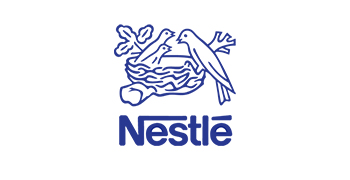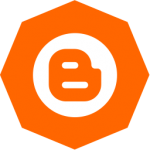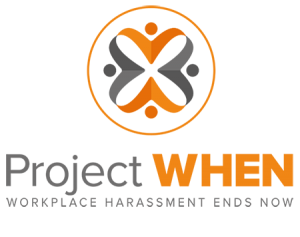Transition to the Smarter Workplace – Case Study – Nestlé
Transition to the Smarter Workplace: A case study on workplace strategies in the food and beverages industry
Fulfilling the need for space optimization
Space availability was at an all-time low at Nestlé’s Solon, Ohio campus as the number of employees expanded significantly. This confluence of events provided Nestlé the opportunity to renovate the Solon Harper Building, utilize the new Nestlé USA (NUSA) Global Workplace Standards, and be the first in North America to go through a cultural work transformation tied to the organization’s new workplace strategy.
The goal of Nestlé’s initiative focused on enabling innovation and effective communication by improving business processes; ensuring high levels of recruitment, retention, and employee satisfaction through a great workplace; implementing flexible work arrangements; and increasing space efficiency and minimizing workspace costs/vacancy by providing the right mix of work and support spaces.
Based on the new NUSA workplace standards, the new Smarter Workplace was introduced. This strategy focused on creating balance and choice in how employees on campus utilize their workspace and provide more social connectivity, access to better technology, and greater flexibility.
As Nestlé sought to understand the impact of the physical workplace to employee behavior in the implementation of the new workplace strategy, they turned to Stegmeier Consulting Group (SCG) to facilitate a successful transition to the new office environment.
A comprehensive approach for a successful transition to the Smarter Workplace
With an approximate six-month lead time until the relocation, SCG created and managed a robust communication strategy, plan, and schedule for communications and activities leading up to the transition to the renovated space.
Employees and leaders, alike, must be equipped with the tools and knowledge needed to gear up for any workplace transition. With that in mind, SCG developed corporate-branded communication content to help the workforce understand and adapt to the workplace change. For Nestlé’s managers, our consultants created a Leadership Toolkit which offered tips and best practices in positively leading change. This resource allowed them to rethink how they can model new work behaviors and put employees in the best position to be successful in a new work environment.
SCG also provided an approach to intercept possible challenges that may arise in transitioning to new ways of working. Our consultants led a group of space champions to represent the voice of their peers and transform areas of difficulty into a positive acceptance of change.
With an ultimate goal of creating a spirit of unity in the face of a dramatic change, SCG facilitated the development of workplace protocols for the new, open work environment. The established group of space champions were motivated to participate in brainstorming sessions to share their ideas and those of their peers on appropriate employee behaviors in the new Smarter Workplace.
Giving employees a glimpse into the future of work at Nestlé
With the move to Nestlé’s Smarter Workplace looming, the organization didn’t want to just talk about how things would be moving forward. A large portion of our engagement was focused on giving employees an up close look at how work was changing for the better. In order to build excitement for the workplace change and to better educate affected stakeholders, SCG developed a series of hands-on learning events for Nestlé employees.
A customized training course to show employees what their day will look like
A customized “Day in the Life” train-the-trainer program, with separate course modules for leaders and employees, was developed to give affected end-users a feel for what their workday would look like in the new Smart Workplace.
Adapting to new ways of working usually means different things to individual contributors and managers. The content we developed for the training course reflected the different concerns and requisite skillsets needed for the success of each group.
For leaders, the focus of this content included best practices in managing their direct reports as they work in new ways and guidance on how to best model appropriate adoption of the future office environment. The employee training course, however, was more geared towards demonstrating working conditions in the new workplace. The material offered a side-by side description of the various workspaces and how employees can utilize each to make the most out of their workday.
The Smarter Workplace Fair
SCG organized the Smarter Workplace Fair, a fun and engaging campus-wide event that would provide employees an opportunity to experience the future of work at Nestlé. This event pulled together thought leaders from different disciplines that could share their perspective on why and how work was changing at the organization.
Similar to a high school science fair, this event featured individuals at different stations, allowing attendees to hear a brief overview on each aspect of work that would be changing for them. Engaging events like this allow employees to ask questions and share concerns in a more casual setting, something they may be apprehensive to do in a formal training or town hall.
The Smarter Workplace Fair was held inside a large indoors space on-site and was divided into seven stations, each designed to introduce participants to the new workplace and provide an overview of the future workplace experience.
The first station was the registration area. SCG hosts welcomed attendees and provided general directions on touring the featured stations. Each employee was issued a Passport to Nestlé Smarter Workplace Fair which would be stamped after they had visited each interactive spot.
Our team introduced employees to major shifts in ways of working in the second station. This area provided an opportunity to educate participants about the concept of activity-based working and reinforce key messaging to help them adapt to change.
The third station focused on the Energy Project, a separate initiative that was conceptualized to help employees identify ways to best manage their energy (physical, emotional, mental, and spiritual).
Space champions manned the next booth. Through suggestions boxes, employees shared their insights about the shift in ways of working, what they were most excited about, and what aspects they want to learn more about.
Stations 5, 6, and 7 provided an overview of the new workplace technology and a description of the new workspace settings. Questions from employees were answered with some demos to further elaborate on specific concerns.
Overall, the event built anticipation among the workforce and gave attendees a tangible feel for not only how work was changing, but how many things would actually be the same. Often on change initiatives, giving employees an up close look at the future of work can be a very calming force, especially when the narrative can be framed to show that not everything is going to change in an employee’s world.
The data gathered from the fair also resulted in actionable findings that were helpful for the transition to the Smarter Workplace. While engaging educational events are great for bringing the workforce up to speed and securing buy-in, they’re equally invaluable for getting a feel for where pain points are and what may still need to be communicated or addressed prior to change adoption.
Consulting services to help companies transition to a new workplace
Preparing for a massive change or transition to a new and improved workplace? Equip your leaders and employees with the tools they need to gain thorough understanding of the workplace change to help them prepare for what’s coming ahead.
If you are interested in devising an effective roadmap to support a successful transition, take the first step by filling out the form below.




